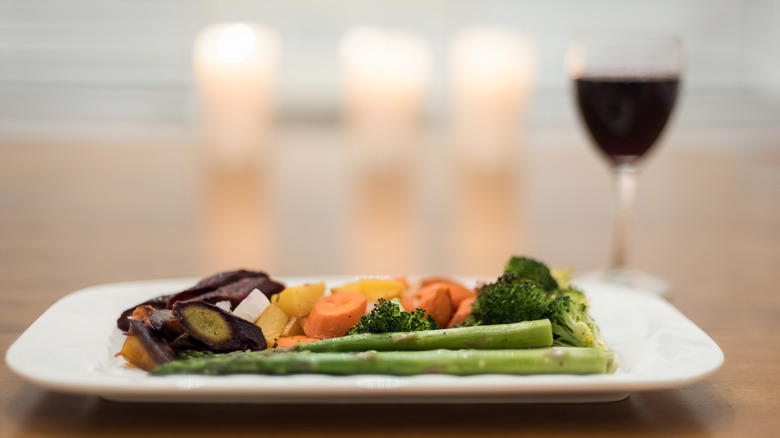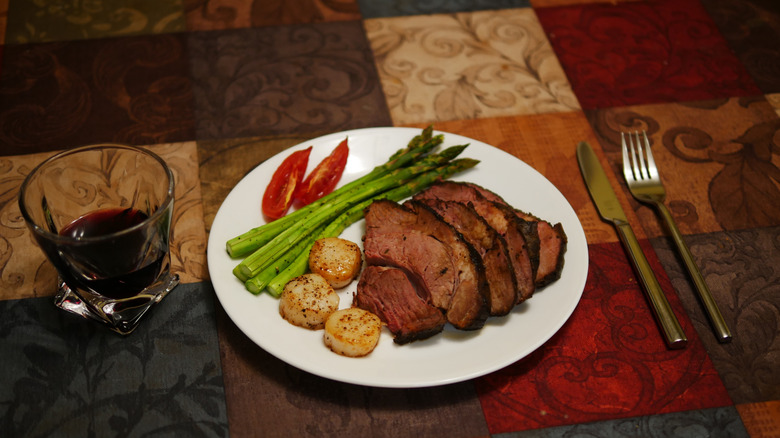The Reason Asparagus Is So Hard To Pair With Wine
There's an intriguing playfulness to pairing wine with food. Sure, there are established guidelines to follow, with science backing pairings like beef and red wine. However, with most possibilities, before you taste and sip, you'll never quite know the result. After all, thousands of compounds contribute to flavor, and the distinct composition of both the food and beverage make their interactions complex.
Well, some ingredients will clash with wine altogether — asparagus being such an example. To explain such a perplexing misfire, Chowhound received exclusive expert advice from Camille Parson Goldstein. The co-founder of Muddling Memories, a beverage-focused hospitality company, she certainly knows the ins and outs of food-drink interactions.
Goldstein recommends avoiding the pairing, since "the asparagus can cause wine to taste metallic or give ... a harsh vegetal flavor." It's a surprisingly strong effect that's rooted in chemistry. She notes that it's caused by the relevantly-named asparagusic acid, a complex compound that contains sulfur. Curiously, this chemical is also responsible for odors in certain individuals post-digestion. So while asparagus certainly deserves a place on the dining room table, know that it causes issues on a wine night.
Asparagus contains a chemical that brings out unsavory notes in wine
If you're absolutely set on including an asparagus plate with your vino, there are options you can use to enhance its palatability. Reach for one of the most dependable wine pairings around — a delicious cheese – and melt it on top of the asparagus. To further minimize its vegetal quality, prepare the asparagus with Gordon Ramsay's tip in mind, searing it on a hot pan. With a stronger charred flavor and gooey cheese on top, it'll become a type of dish that melds with a dry white wine.
Of course, it's also fully understandable that you'll simply turn to a different vegetable dish instead. Just keep in mind that there are other clashes to watch out for, too. Goldstein cites that artichokes, Brussels sprouts, and cauliflower are all on the difficult-to-pair list. Furthermore, spicy food presents a challenge, with its dominating palate. She also notes that iron-rich foods are another source of trouble. Especially combined with iron-rich red wines, you'll just be left with an overabundance of metallic flavors.

